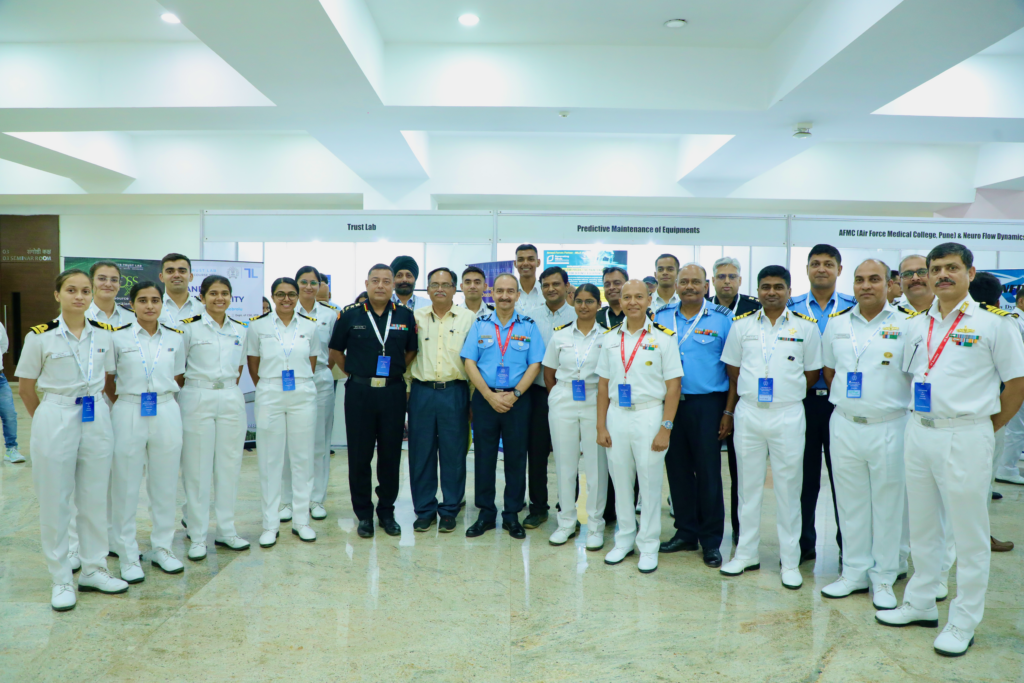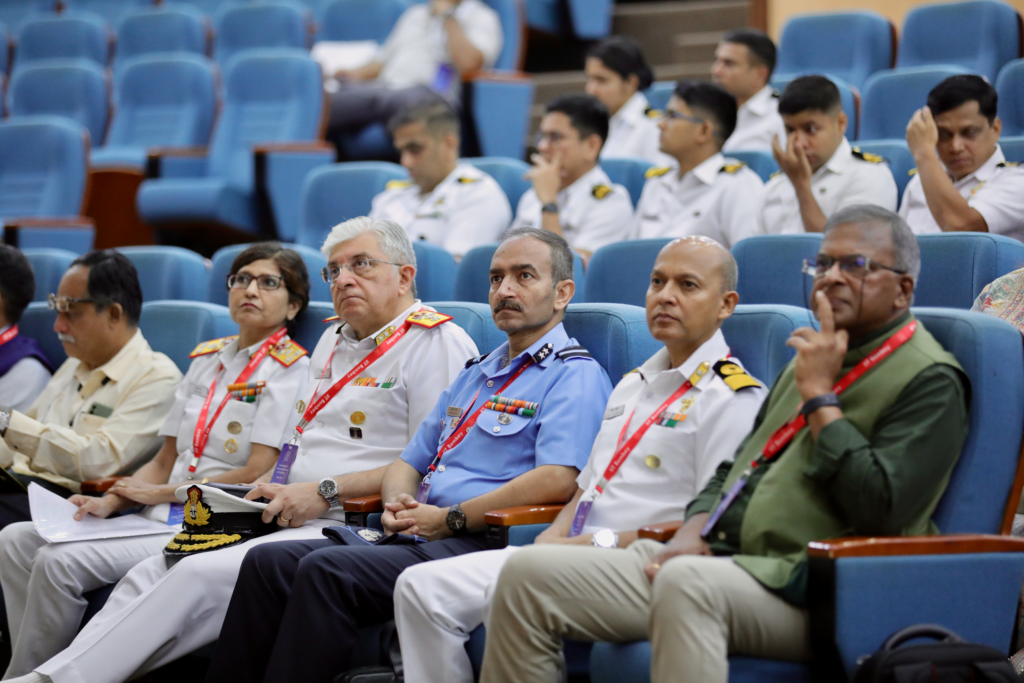Translational AI: Journey of an Idea from Lab to Practice
“The Data Security: Securing Enterprise, Data and Digital Identity” session of this workshop by IITB Trust Lab tackled a pressing question: How do we secure our digital world in the age of AI? Cryptography experts, cybersecurity professionals, and privacy advocates debated the fine balance between innovation and protection. Their discussions revealed a stark truth: as AI reshapes our digital landscape, our approach to security must evolve just as swiftly.
The Workshop on “Translational AI: Journey of an Idea from Lab to Practice” was co-hosted by IITB Trust Lab and TCA2I at IIT Bombay on May 12th, 2024. This gathering brought together experts from various fields to explore the practical applications and implications of artificial intelligence across multiple domains.It provided a comprehensive overview of AI’s journey from laboratory concepts to real-world applications, highlighting both the immense potential and the critical challenges that come with widespread AI adoption.
The workshop was structured into four main sessions, each focusing on a critical aspect of AI application.
The first session delved into “Digital Health: Use of AI in Healthcare,” featuring talks from prominent medical professionals and researchers. Speakers such as Surg Rear Admiral Vivek Hande and Surg Commander Arnab Gosh shared their insights on AI’s potential to revolutionize healthcare diagnostics and patient care.
The second session explored “Military Use Cases: The Opportunities and Challenges.” This segment highlighted initiatives like eYantra, presented by Prof. Kavi Arya, which aims to nurture the next generation of embedded systems engineers. Capt. Ritiesh Wahi of WESEE discussed the importance of synergy between startups, industry, and defense users in leveraging AI for military applications.
The third session, which was hosted by IITB Trust Lab, focused on “Data Security: Securing Enterprise, Data and Digital Identity.” This segment brought together experts to discuss the intricate balance between harnessing AI’s power and ensuring robust data security measures.
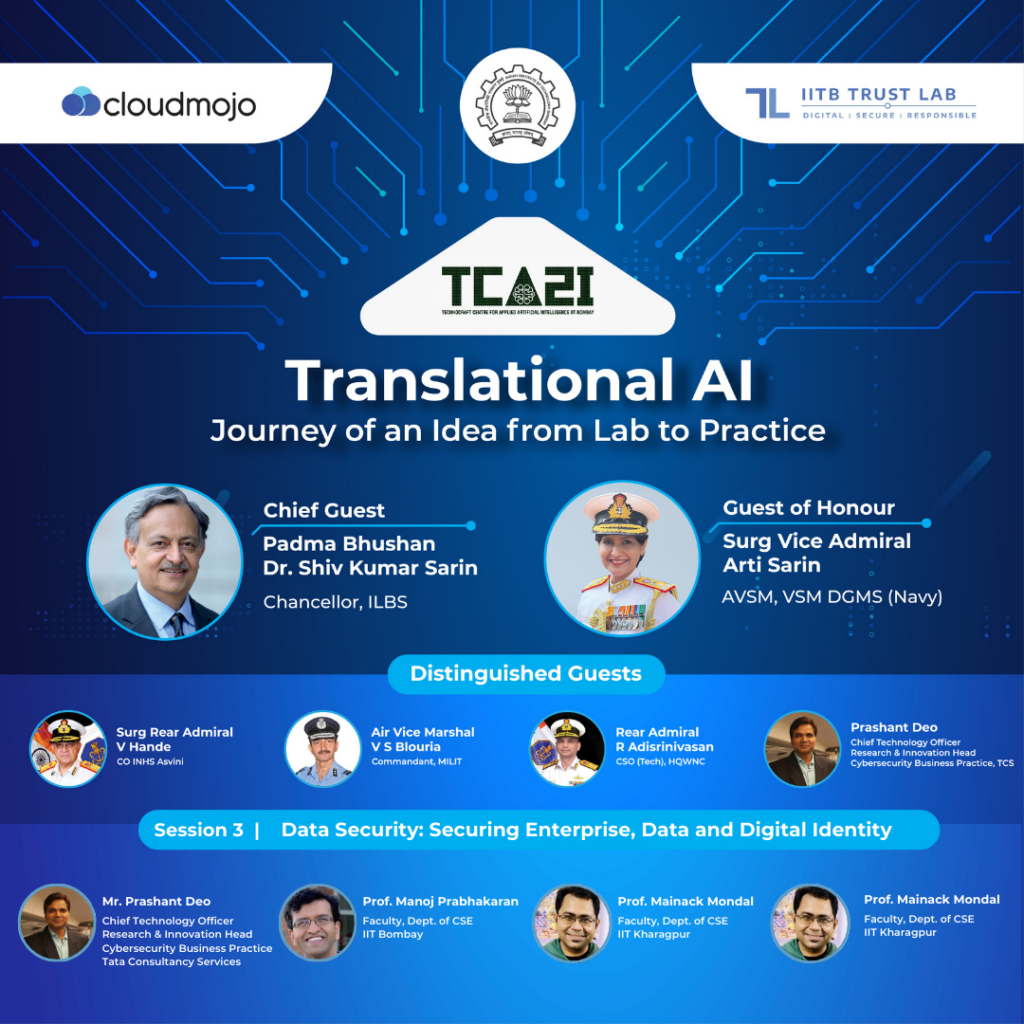
The session began with an address by Mr. Prashant Deo, CTO & Research and Innovation Head of the Cybersecurity Business Practice at TCS. Mr. Deo’s talk centered on the evolving landscape of cybersecurity in the age of AI. He explored the implications of predictive generative AI on security and discussed the impact of technologies like ChatGPT on the cybersecurity landscape. A significant portion of his address emphasized the need for robust cybersecurity measures to mitigate the risks associated with “AI gone rogue.” Mr. Deo provided valuable insights into AI risk management strategies for enterprises, the concept of data-centric protection in the context of AI systems, and enterprise AI security assurance methodologies. His talk offered a comprehensive view of how organizations can adapt their security postures to address the unique challenges posed by AI technologies.
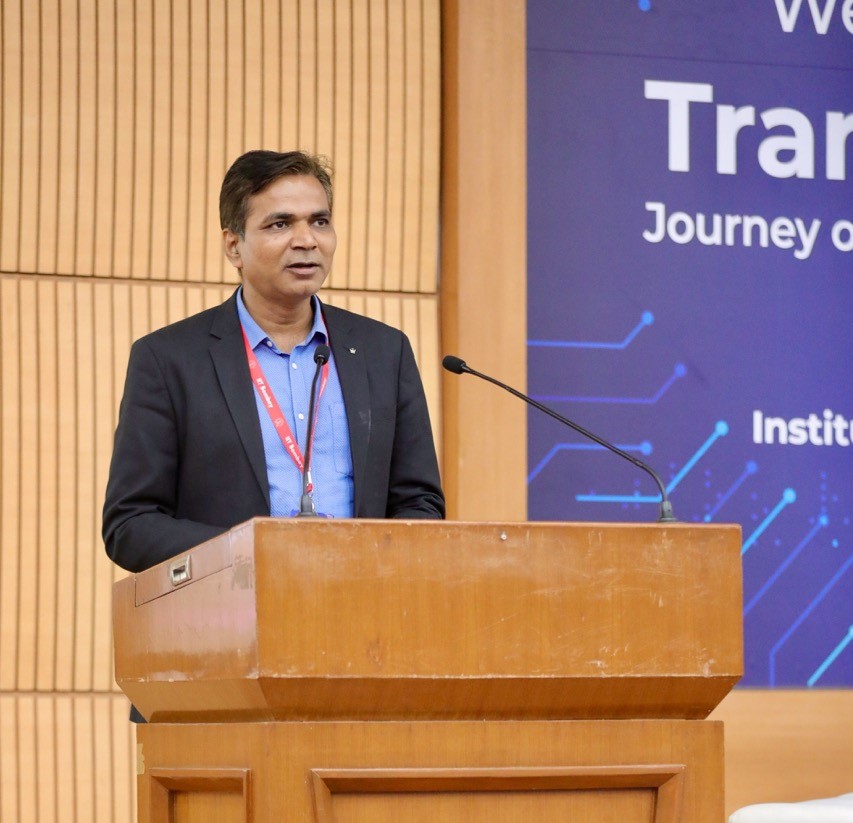
Following Mr. Deo, Prof. Manoj Prabhakaran from IIT Bombay took the stage. His presentation explored the complex interplay between data security, cryptography, and AI. Prof. Prabhakaran highlighted AI-powered threats, including sophisticated scamming techniques, synthetic media creation, and enhanced surveillance capabilities. He also discussed the role of AI in defending against these threats, particularly in anomaly detection and rapid response mechanisms. A key focus of his talk was the importance of protecting AI resources themselves, covering aspects such as data privacy, model privacy, and data and model integrity. Prof. Prabhakaran’s talk effectively highlighted the dual nature of AI in the security landscape – both as a potential threat and as a powerful tool for defense.
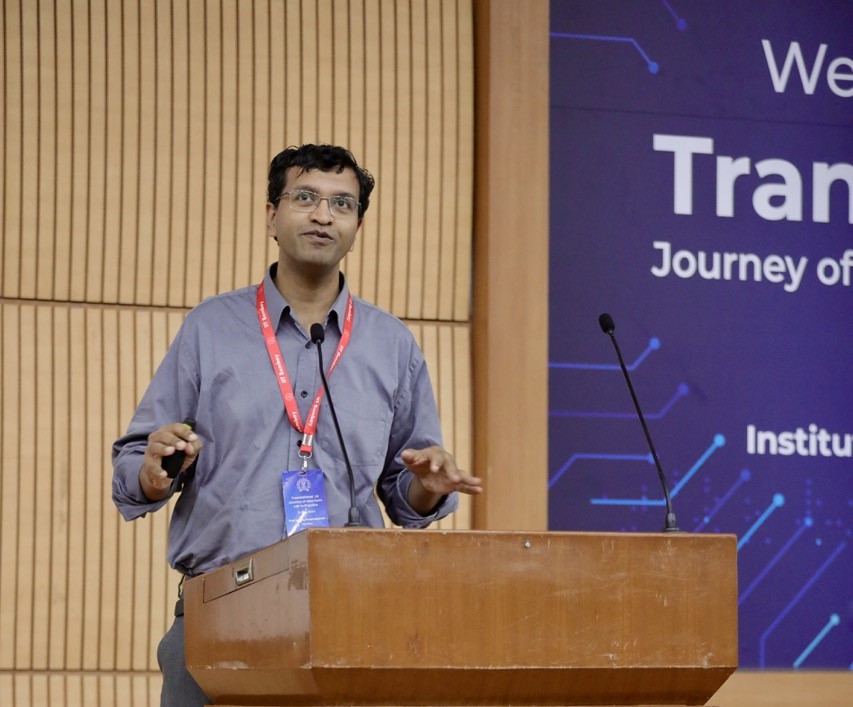
The third speaker, Prof. Mainack Mondal from IIT Kharagpur, focused on the privacy and security challenges associated with emerging technologies, with a particular emphasis on AI. He used case studies of UPI fraud and e-banking vulnerabilities to illustrate real-world risks, making the abstract concepts more tangible for the audience. Prof. Mondal stressed the importance of user-centric approaches in designing security solutions and highlighted the role of education in creating awareness about AI-related security risks. He also discussed technical solutions like differential privacy to address privacy concerns in AI systems. Throughout his talk, Prof. Mondal emphasized the need to address these often abstract but critical risks in the responsible development and deployment of AI technologies.
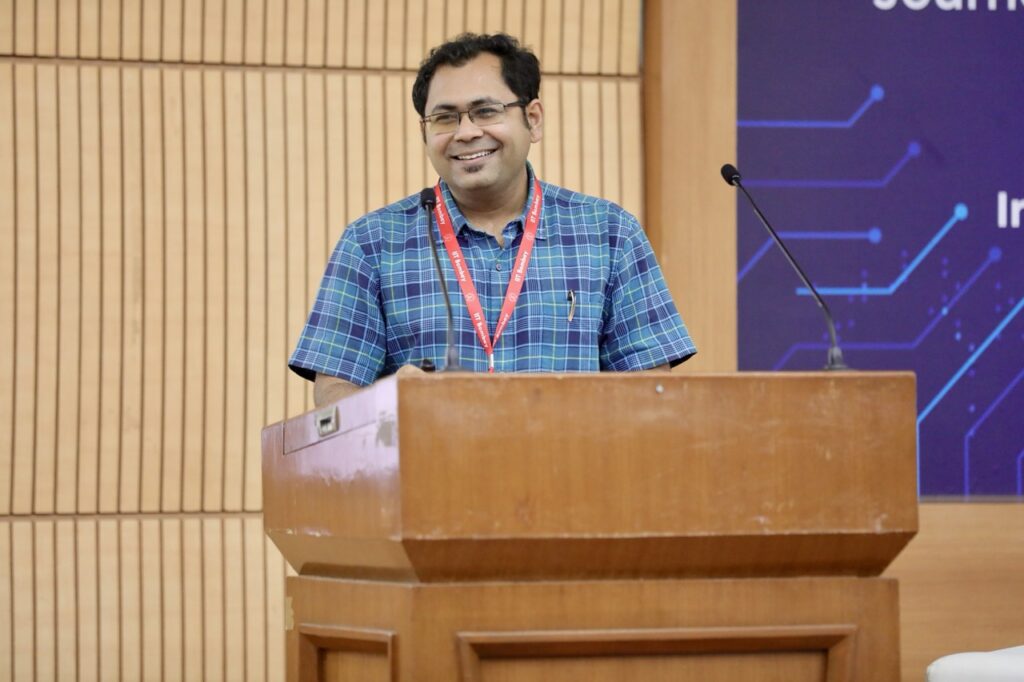
The “Data Security: Securing Enterprise, Data and Digital Identity” session concluded with a panel discussion moderated by Prof. Manjesh Hanawal. The panel included the three speakers – Mr. Prashant Deo, Prof. Manoj Prabhakaran, and Prof. Mainack Mondal – along with Prof. Faruk Kazi (Professor & Dean of Research & Development at VJTI). This discussion provided a platform for the experts to debate complex issues, offering attendees a multifaceted view of the challenges and potential solutions in the realm of AI and data security.
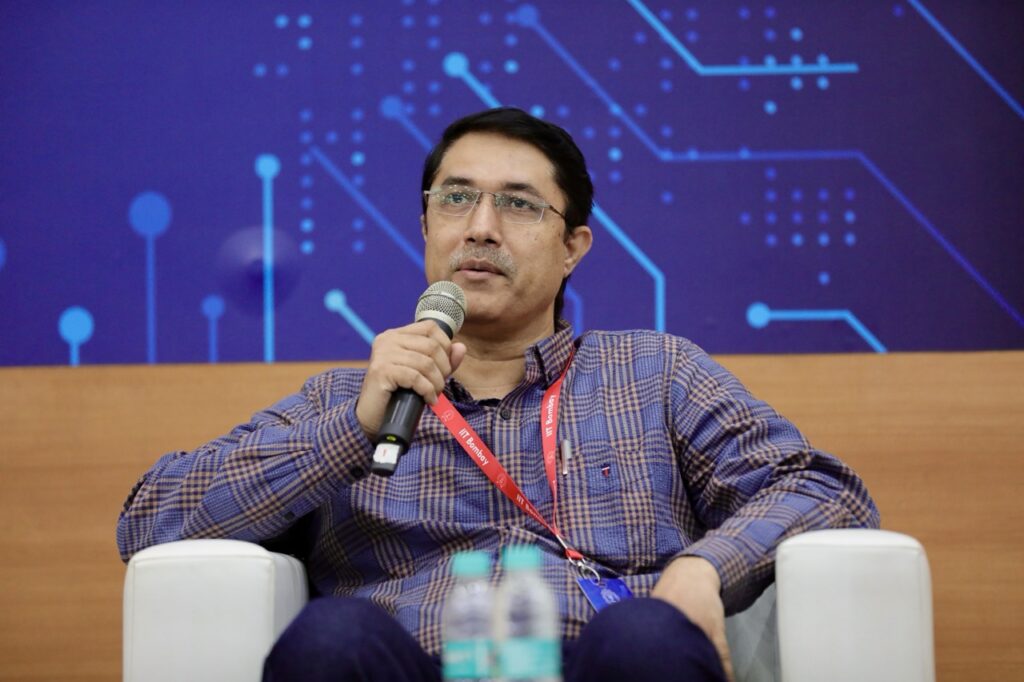
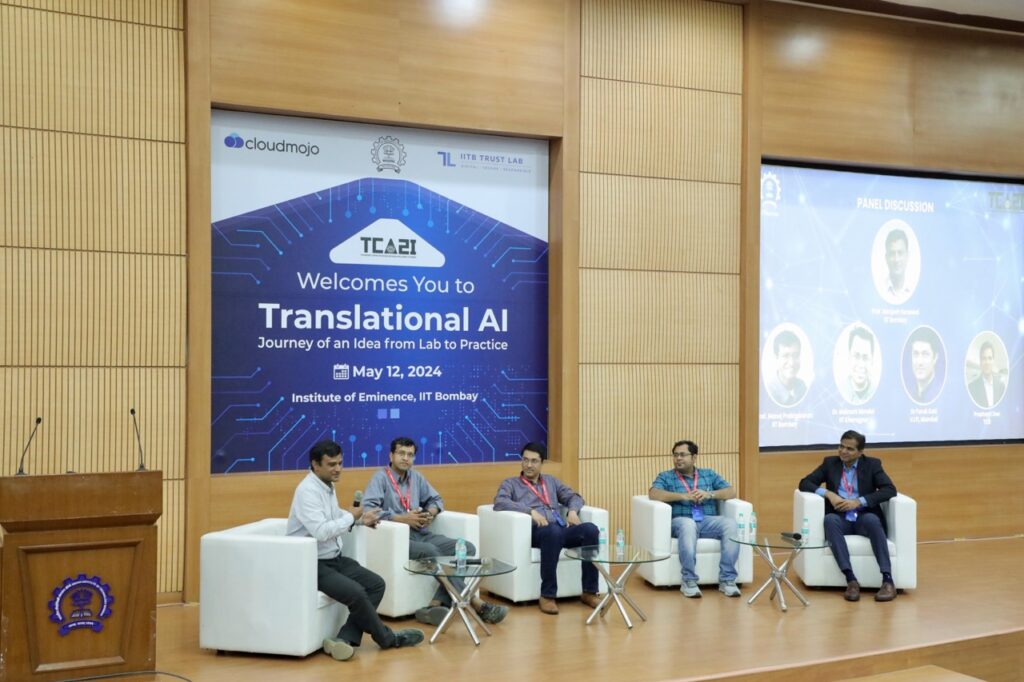
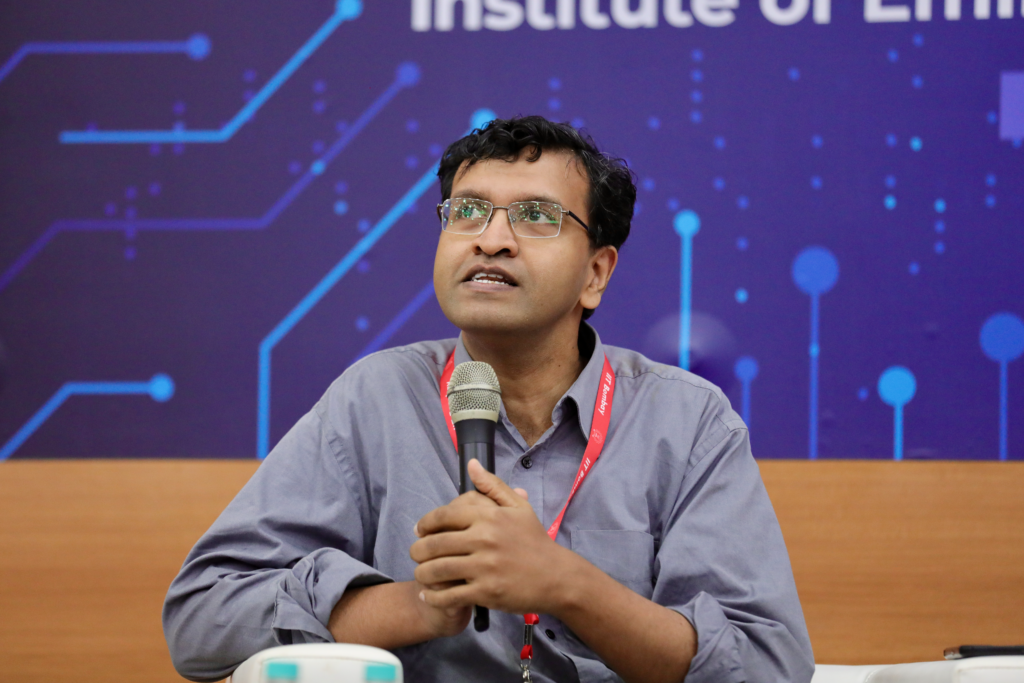
Another significant point of discussion was the security of enterprise data and big data, addressing the unique challenges of securing large-scale data operations in organizational settings. The panel also examined the use of pre-trained models in enterprise machine learning and AI, exploring the security implications of using off-the-shelf AI models in business environments.

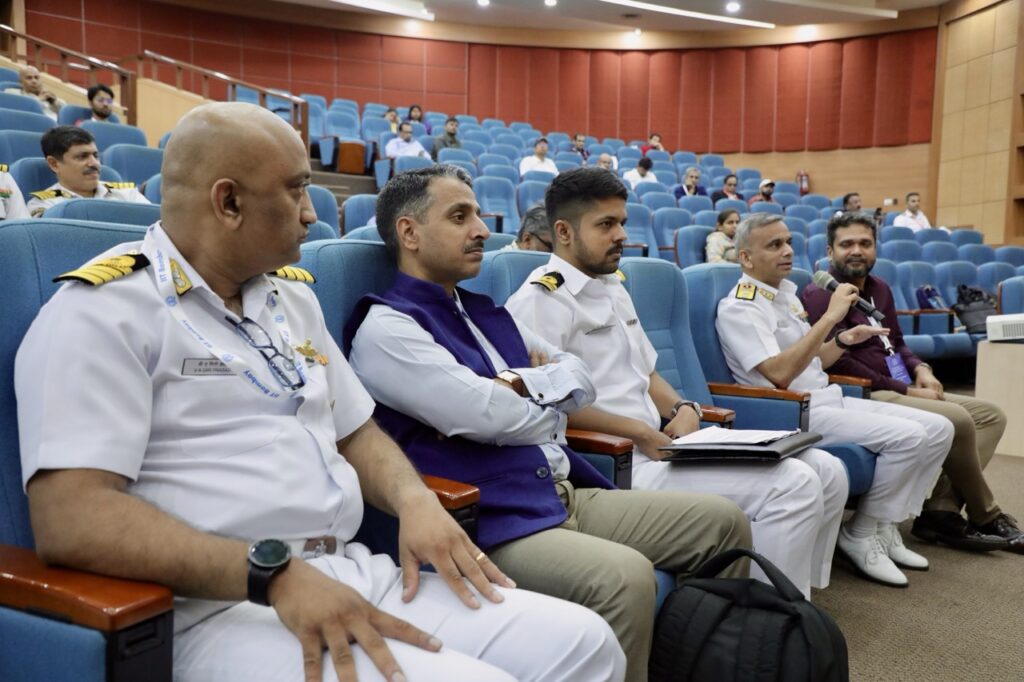
Overall, the “Data Security: Securing Enterprise, Data and Digital Identity” provided a comprehensive exploration of the intricate relationship between AI and data security. It highlighted both the potential risks introduced by AI technologies and the innovative ways in which AI can be leveraged to enhance cybersecurity measures. The session underscored the need for a holistic approach to security that considers technological, organizational, and human factors in the rapidly evolving landscape of AI and data protection. Through the diverse perspectives of the speakers and the engaging panel discussion, attendees gained valuable insights into the complex challenges and promising solutions at the intersection of AI and cybersecurity.
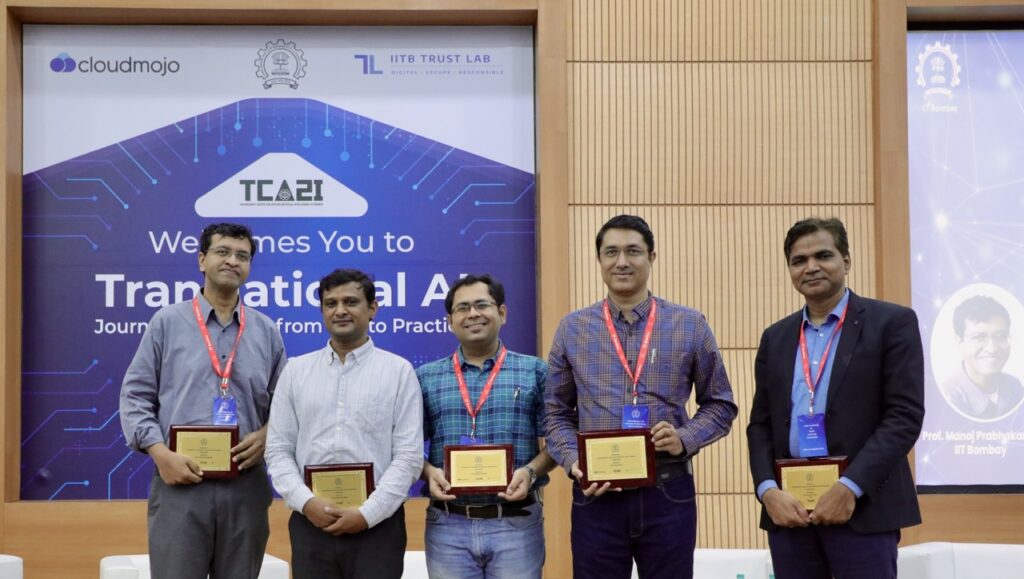
The final session of the day centered on “Digital Twin: Equipment, Process and Human Digital Models.” Speakers like Rear Admiral R Adhisrinivasan and CDR. Ashutosh Kaushal presented on the Navy’s adoption of digital twin technology and data-driven initiatives. Dr. Aniruddha Roy discussed the role of LiDAR technology in creating accurate digital models.
